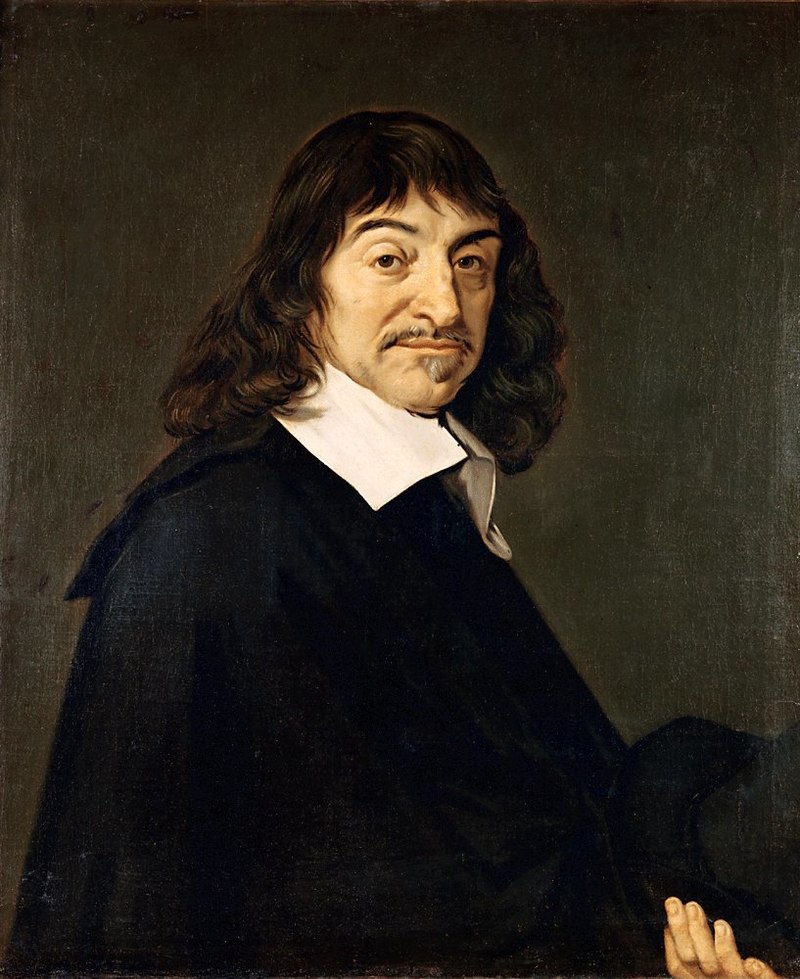René Descartes (1596-1650) was a French philosopher, mathematician, scientist, and writer who is widely considered to be one of the most influential thinkers of the modern era. He is best known for his philosophical works, including Meditations on First Philosophy and Discourse on the Method, and for his contributions to mathematics and science, such as his invention of Cartesian coordinates and the development of analytical geometry. Descartes was also a pioneer in the field of optics and wrote extensively on the refraction of light. He is often credited with being the founder of modern philosophy and is widely regarded as one of the most important figures in Western intellectual history.
Descartes’ Early Life
René Descartes, the 17th century French philosopher, mathematician, and scientist, was born on March 31, 1596 in La Haye, Touraine, France. He was the son of Joachim Descartes, a lawyer, and Jeanne Brochard, a midwife. His father wanted him to become a lawyer, so he attended a Jesuit college in La Flèche from 1606 to 1614. During this time, he was exposed to mathematics, physics, and astronomy, interests that would remain with him throughout his life.
In 1618, Descartes volunteered for the army of Maximilian of Bavaria and spent nearly a year in the Netherlands. During this time, he wrote his first book, Rules for the Direction of the Mind and began to develop a passion for scientific inquiry. He also solidified his commitment to the pursuit of truth, which would become a major theme in his later writings.
Descartes returned to France in 1622 and the following year he published three major works: La Géométrie, Discourse on Method, and Meditationes de Prima Philosophia. The works were well-received, and Descartes quickly became one of the most influential thinkers of the time. He continued to publish works and gain recognition until his death in 1650.
Descartes’ Education
and Early Life
Descartes is best known for his philosophical works, but his life was full of many accomplishments. René Descartes was born in La Haye, France, in 1596. His mother, Jeanne Brochard, died when he was just one year old. His father, Joachim Descartes, was a lawyer and a member of the Parlement of Brittany, and he remarried when Descartes was only five. Descartes received a classical education at the Jesuit College of La Flèche in Anjou, France. He studied mathematics, rhetoric, classical languages, and philosophy. After leaving school, Descartes traveled extensively, visiting Germany, Holland, and England. He was especially interested in mathematics and philosophy, and he was deeply influenced by the works of Galileo, Kepler, and Aristotle. He also read the writings of the ancient Greeks and Romans, and drew inspiration from their work. During his travels, Descartes met many influential people, including the Dutch philosopher and scientist, Isaac Beeckman. Descartes’ early life was full of both intellectual and worldly pursuits. He was an avid traveler and thinker, and his experiences shaped his philosophical views.
Descartes’ Major Contributions
to Philosophy
René Descartes is widely known as the father of modern philosophy. He is remembered for his influential works, which revolutionized the way we think about the world and the way we reason. He was responsible for laying the foundations of modern philosophy and for introducing the concept of Cartesian doubt. But what are the major contributions of Descartes to philosophy?
Descartes is most famous for his works on epistemology and metaphysics. He is best known for his famous philosophical argument, the Cogito ergo sum, which translates as “I think, therefore I am”. This statement is the basis for his system of rationalism, which states that knowledge is acquired through reasoning rather than through the senses. He also introduced the method of Cartesian doubt, which involves suspending belief in all acquired knowledge and using systematic doubt to test the veracity of beliefs.
Descartes is also responsible for introducing the concept of Cartesian dualism, which states that the mind is an immaterial entity distinct from the body. This idea has had a major impact on the development of modern psychology. Additionally, Descartes’ work on mathematics and physics laid the foundation for modern scientific methods. His works on calculus, optics, and mechanics were responsible for introducing the world to the scientific revolution.
Overall, René Descartes’ major contributions to philosophy have had a profound impact on the development of modern science and philosophy. His works on epistemology, metaphysics, dualism, and mathematics revolutionized the way we think and reason about the world. Descartes’ influence on the world of philosophy is undeniable and his legacy will continue to live on for generations to come.

Descartes’ Relationship with the Church
Descartes was a philosopher and mathematician who lived during the 17th century, and his relationship with the Church was complicated. He was a devout Catholic, and yet he was highly critical of the Church and its doctrines. Descartes was critical of the Church’s reliance on tradition and scripture to explain the nature of reality, and instead sought to use science and reason to understand the universe. He was also critical of the Church’s attempts to use its authority to impose its will on the people. Despite his criticisms, Descartes believed in the importance of religion and the need for religious order in society. He believed that religion could be used to promote ethical behavior and virtue, and that it could be a powerful force for good in the world. Ultimately, Descartes’ relationship with the Church was complex and ambivalent, and it is a subject that has been widely discussed in philosophy and religious studies.
Descartes’ Later Years
René Descartes was born in 1596 in La Haye, France, and is one of the most influential thinkers of the 17th century. He is well-known for his famous philosophical works, including Discourse on the Method and Meditations on First Philosophy. But what is less known about Descartes is his later years.
Descartes lived and worked in the Netherlands from 1628 to 1649, where he wrote some of his most famous works. During this time he was heavily involved in mathematics, science, and philosophy. He was also interested in music, literature, and poetry, and was a great admirer of Dutch culture.
Descartes died in Stockholm in 1650, and his last words were “I think, therefore I am”. His works influenced many thinkers in the centuries that followed, and he is considered one of the founders of modern philosophy.
Descartes’ later years were marked by a period of intellectual exploration, and he was able to develop his ideas about mathematics, science, and philosophy in a more mature and sophisticated manner. He was also able to draw upon the knowledge of the Dutch scholars and scientists of the time, which helped him further refine his theories.
Descartes’ later years were filled with intellectual pursuits, and his works continue to influence the world today. He is credited with pioneering the study of mathematics and its application to the physical world, as well as laying the groundwork for the development of the scientific method. His works also provided the foundation for modern philosophical thought.
Descartes’ Legacy
René Descartes is widely regarded as one of the most influential philosophers of all time. His contributions to the field of philosophy, mathematics, and science have had a profound effect on our understanding of the world. Descartes’ legacy lives on in the form of books, essays, treatises, and theories that continue to shape and inform our views of reality. Descartes’ legacy is evident in the works of modern scientists such as Isaac Newton, Albert Einstein, and Stephen Hawking, who have all built upon his ideas in their own groundbreaking work. Descartes’ influence can also be seen in fields such as psychology, epistemology, and metaphysics. His views on the nature of knowledge, the existence of an external world, and the possibility of an afterlife have been debated and discussed for centuries. In addition, Descartes’ name is synonymous with the idea of rationalism, which holds that knowledge is acquired through reasoning rather than experience. Without Descartes’ groundbreaking work, the modern world would look very different.
FAQs About the Descartes Biographie
Q: Who was Rene Descartes?
A: Rene Descartes (1596-1650) was a French philosopher, mathematician, and scientist who is widely regarded as the father of modern philosophy. He is best known for his famous philosophical statement, “Cogito ergo sum” (“I think, therefore I am”).
Q: What are Descartes’ major works?
A: Descartes’ major works include his Discourse on the Method (1637), Meditations on First Philosophy (1641), and Principles of Philosophy (1644).
Q: What is the importance of Descartes’ work?
A: Descartes’ work is important because it laid the foundations for the development of modern scientific thought. His emphasis on the application of mathematics and the use of reason and logic to solve problems transformed the way people viewed the world and helped to revolutionize science and philosophy.
Conclusion
René Descartes is one of the most influential thinkers in history. His philosophical writings and scientific contributions have had a lasting impact on the development of modern philosophy and science. His most famous works, such as Meditations on First Philosophy and Discourse on the Method, have changed the way we think about the world. Descartes’ legacy continues to shape our understanding of the natural world and the human mind today. His commitment to rational thought and intellectual exploration have made him an iconic figure in the history of philosophy.




